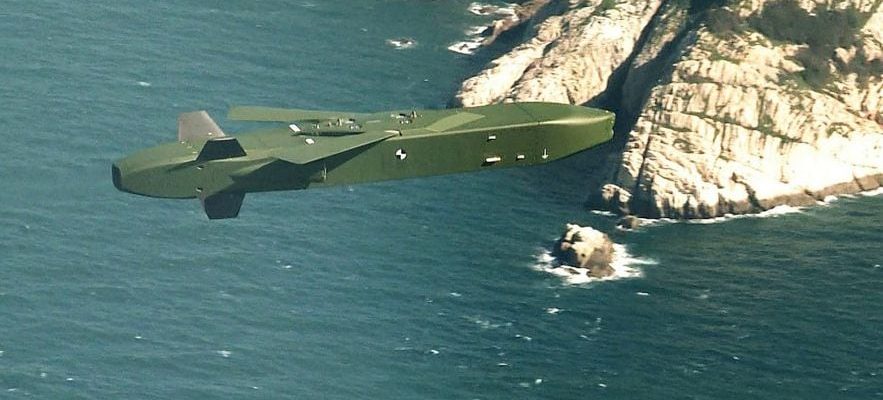Olaf Scholz at least has the merit of consistency. Pressed for months by kyiv and its allies to provide long-range Taurus missiles to the Ukrainian forces, the German Chancellor is not budge: taking the plunge is out of the question. Two days after the two-year anniversary of the Russian invasion, the leader of the ruling coalition even reiterated his refusal in the press and on social networks. “We will not become co-belligerents – neither directly nor indirectly,” he insisted on In 2022, the German leader resisted calls to deliver Leopard 2 tanks for many months, before finally giving in at the start of 2023.
Highly coveted by the Ukrainians, the Taurus missiles could prove particularly valuable in their strike campaign against Russian installations in Crimea. With a range of at least 500 kilometers, they are designed to reach objectives located deep in enemy territory with great precision. “These missiles are perfectly suited to neutralizing high-value targets, such as logistical depots or command posts,” summarizes General (2S) Jérôme Pellistrandi, editor-in-chief of the National Defense Magazine. With Storm Shadow and Scalp missiles delivered by London and Paris – which can strike up to 250 km – the German missile has the significant advantage of having a wider range of action.
Outcry
In his interview with the German press agency DPA on February 26, the German Chancellor tried to justify his desire not to follow in the footsteps of his allies. His argument? The use of the Taurus would require the presence of German soldiers on Ukrainian soil. Implying in passing that this was the case with British and French missiles.
Image of a Taurus missile fired from a South Korean Air Force F-15K fighter jet during an exercise on September 12, 2017
© / Getty Images via AFP
In London, this assertion caused a stir. On February 29, 10 Downing Street denied providing any assistance to kyiv for the “use” of Storm Shadow missiles, specifying that the “targeting processes are the responsibility of the Ukrainian armed forces”. Some British MPs did not hide their indignation. “Scholz’s comments are erroneous, irresponsible and constitute a slap in the face for the allies,” criticized conservative MP Alicia Kearns the same day, accusing him “of compromising the security of Europe”.
Far from being confined to the United Kingdom, the German Chancellor’s declaration also sparked an outcry from part of his political class. Including among its allies. “Olaf Scholz cites an argument that has long been refuted,” said Marie-Agnes Strack-Zimmermann, leader of the Liberal Democratic Party (FDP) in the European elections – whose party is a member of the government coalition – the next day. “German soldiers are not needed on Ukrainian soil to [faire fonctionner] the Taurus. The chancellor’s statement is false.” Same story among the Greens. “None of those demanding Taurus want Germany to become a co-belligerent,” asserted Agnieszka Brugger, deputy head of the environmental group in the Bundestag, adding “reject this accusation.”
A missile “too” powerful
The argument is contested beyond political circles. “It is completely false to say that Germany would need to send soldiers to Ukraine to operate these missiles,” confirms Gustav Gressel, defense specialist at the Berlin office of the European Council on Foreign Relations. None of between them is responsible for this mission in the countries which use this weapon.” Manufactured by Taurus Systems GmbH, this German-Swedish missile is today used by the German, Spanish and South Korean armies. “Integrating these missiles into Ukrainian aircraft of Soviet origin would require adaptation work, but it would be carried out by the manufacturer, not by the Bundeswehr, which does not have this skill in any case,” adds the researcher.
The German Chancellor’s reluctance could in reality hide a fear of another nature. With their 481 kilos of explosives and their two-stage warhead system, the Taurus missiles are capable of destroying a wide range of structures, especially the most hardened. “Olaf Scholz probably fears that one of them will be used to destroy the Kerch bridge,” says Hans Stark, advisor for Franco-German relations at the French Institute of International Relations. 18 kilometers long, the structure, which connects Russia to the Crimean peninsula, plays a crucial role in supplying Russian forces present in southern Ukraine. In addition to a military setback for Russia, its destruction would constitute a personal snub for Vladimir Putin. Enough to fuel the concerns of the German Chancellor… Which were surely exacerbated after the “interception” and leak on social networks – confirmed by the Bundeswehr – of a conversation between German officers, in which the latter raised the hypothesis of the use of Taurus missiles by Ukrainian soldiers and possible targets… like the Kerch bridge.
While Germany today represents the leading European contributor to Ukraine’s defense – more than 17 billion euros in military aid in two years, according to the Kiel Institute – the procrastination of its leader would almost eclipse it. the efforts made by Berlin. “Germany is at the heart of the support system for Ukraine, but it is true that this issue of the Taurus is damaging the image of the country,” regrets Hans Stark. It remains to be seen whether, as in the past, this will be enough for the Chancellor to review his copy.
.
